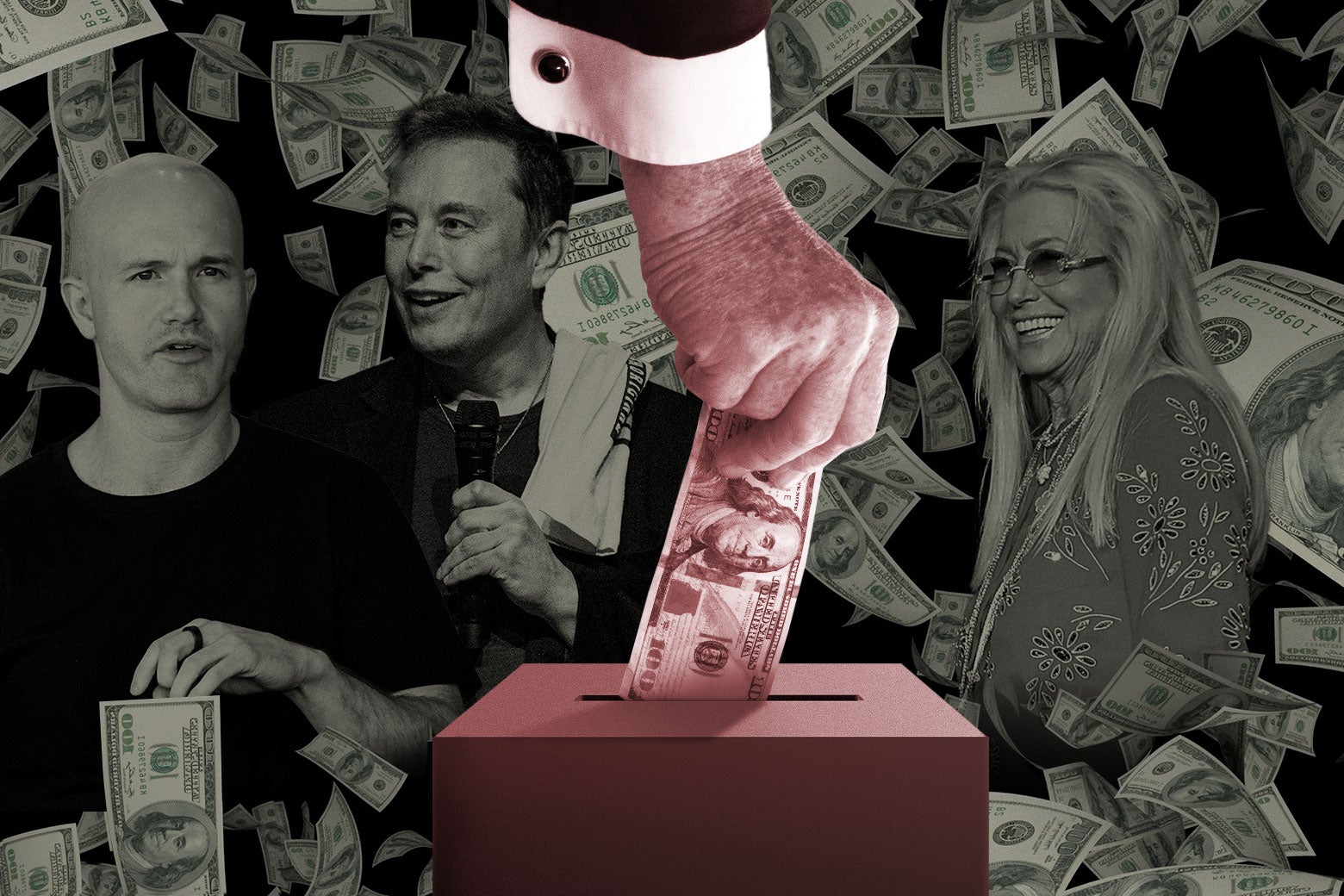Politics
The Disturbing Factor Behind This Close Election

As we approach the presidential election, we must grapple with a critical question: if Donald Trump emerges victorious, who will bear the responsibility for this outcome? The answer may point directly to the burgeoning influence of billionaires on our political landscape.
In a striking display of financial clout, over 60 billionaires have rallied behind Trump, opening their wallets to an alarming degree. Some are contributing sums of $10 million or even $20 million, highlighting a stark reality—these wealthy individuals are more preoccupied with the potential for increased taxes than the existential threats posed to our democracy.
This year marks a watershed moment in the unprecedented openness with which the ultra-rich are flexing their financial influence. As noted, America’s 800-plus billionaires control over $6 trillion in wealth, a staggering amount surpassing that of the bottom half of U.S. households combined. Their grip on national wealth is reminiscent of the Gilded Age when figures like Rockefeller and Carnegie wielded immense power.
Take Timothy Mellon, for instance, who has donated a jaw-dropping $125 million to a pro-Trump super PAC—equivalent to the contributions of 3 million average Americans giving $40 each. Then there’s Miriam Adelson, whose $100 million contribution fuels a barrage of pro-Trump advertising in critical battleground states such as Wisconsin, Michigan, and Pennsylvania. Even media tycoon Rupert Murdoch has played his part, leveraging Fox News as a pro-Trump propaganda machine.
In addition, Dick Uihlein, an Illinois billionaire, funneled a staggering $49 million into a pro-Trump super PAC. The Perlmutter family, with ties to Marvel Entertainment, contributed $25 million, and investor Jeff Yass and his wife have given $70 million to conservative causes this election cycle. Musk, the $250 billion entrepreneur, is not sitting idle either—having invested $75 million in a super PAC to facilitate Trump’s get-out-the-vote operation while using Twitter to amplify pro-Trump narratives.
The power of these billionaires extends beyond presidential races; they are also affecting Senate and House elections. For example, cryptocurrency evangelists like Brian Armstrong have mounted a $40 million effort to unseat Senator Sherrod Brown, who dares to criticize their industry.
Without this significant backing from the ultra-wealthy, Trump’s competition against Kamala Harris would likely be far less formidable, potentially placing him well behind in the polls. The influence of this financial class underscores the caution articulated by Supreme Court Justice Louis Brandeis: we can either have democracy or concentrated wealth in the hands of a few, but not both.
The billionaires throwing their support behind Trump appear unconcerned about preserving democratic principles. They support him despite his troubling authoritarian rhetoric and promises to undermine the Constitution while fiercely pursuing tax cuts and deregulation rather than safeguarding democratic checks and balances.
While Harris has garnered support from influential billionaires like Bill Gates, who has contributed $50 million, she aligns more with the sentiment against extreme wealth disparity and advocates for higher taxes on the ultra-rich, seeking to implement measures such as a billionaire minimum tax.
Public awareness of the super-rich’s manipulation of policymaking is paramount. In the aftermath of the 2008 recession, the wealthy successfully lobbied for budget deficit reductions while neglecting high unemployment rates. They even prevented meaningful reforms, like closing the “carried interest” tax loophole that benefits private equity executives by taxing their earnings at lower rates.
The lobbying prowess of billionaires illustrates why Congress continually thwarts popular progressive policies, such as a higher minimum wage or paid family leave. Furthermore, the Koch brothers’ efforts to undermine climate change science reveal the lengths to which the wealthy will go to protect their interests.
The actions of the ultra-wealthy constitute a serious threat to our democracy, the environment, and economic fairness. There’s an urgent need for reform, but the path is obstructed by a Supreme Court that often blocks actions intended to limit the political power of the ultra-wealthy.
One feasible step would be to implement a 2 percent annual tax on billionaires’ wealth, as proposed by economics professor Gabriel Zucman. This could generate over $100 billion a year, potentially funding universal pre-K or expanding affordable housing.
Critics may decry such taxes as unfair, yet the reality for billionaires, who might see their wealth reduced, should not elicit sympathy.
This should only be the beginning. We must prioritize public financing of elections to mitigate the overwhelming influence of the wealthy elite and counteract decisions stemming from the Citizens United ruling. We need a Supreme Court that will challenge the interests of the ultra-wealthy rather than acquiescing to them.
Most importantly, it is vital to prevent Donald Trump from returning to power. The evidence is clear: his presidency would likely cater to the interests of the ultra-rich, as demonstrated in his prior term, placing them above the needs of everyday Americans. The stakes are high, and the future of our democracy hangs in the balance.
